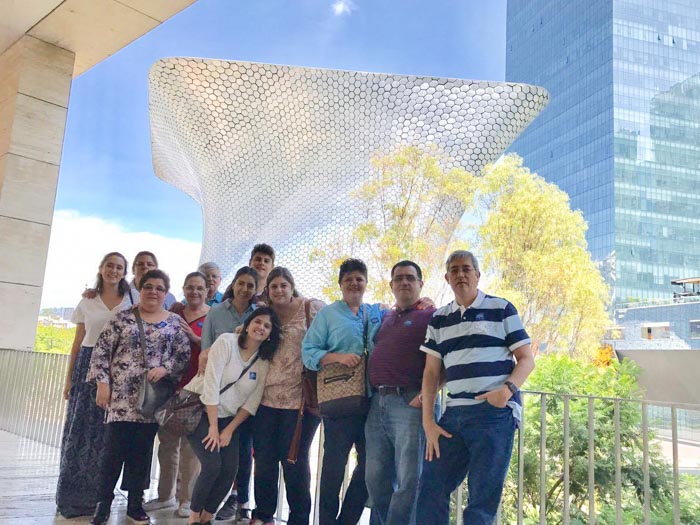Tupperware containers in hand, two Mexican McGill students implored hundreds of strangers in Leacock 132 to spare some change to support relief efforts in the wake of the Sept. 19 earthquake in Mexico City.
Living away from home is not easy, let alone watching tragedy strike from afar. Challenging routine tasks, such as schoolwork, become unbearable in the wake of tragedy. When the brain experiences uncertainty due to stress, it signals a physiological response, activating the nervous, endocrine, and cardiovascular systems, among others. The adverse changes in brain chemistry can cause physiological trauma that can outlast even the most horrific memories of the experience.
Maritere Hernández, a U1 student in sociology, knows this feeling first-hand. She is a member of the Spanish and Latin American Students’ Association (SLASA), the same group that spent the last week fundraising for relief efforts in Mexico. Along with SLASA President Ivan Gonzalez, a PhD student in mathematics at McGill, both students have family and friends still living in Mexico City.
“At first I couldn’t believe it was happening,” Hernández said. “I was in the middle of my class and I received hundreds of messages in my family group, and they couldn’t find one of my cousins […] no one knew if she was […] alive.”
In a joint study released by the Université de Montréal and Rockefeller University, a direct connection linked the age at which the traumatic experience occurs and the detrimental effects on development.
“Exposure to stress or adversity during these key vulnerable periods might slow the development of those brain regions for the duration of the adversity,” the study reported. “When measured in adulthood, the reduced volumes of these brain regions could be a strong marker of the time of exposure to early adversity.”
Similarly, Gonzalez described feeling powerless upon hearing the news of the earthquake, as well as in the subsequent days.
“When my father called me I got really scared,” Gonzalez said. “My father is a man who never speaks with a [trembling] voice and for the first time in my 24 years of life, I [heard] him speak with a tremble in his voice. He was really scared.”
Coupled with the everyday stresses of midterms and assignments, a psychological breakdown in young adults experiencing trauma becomes increasingly likely.
The earlier in life that these incidents occur, the longer the brain is bombarded with a prolonged sense of panic, thereby raising steroid levels and inhibiting the functions a student needs to be successful in their studies. The regions that are most affected, the hippocampus, amygdala, and medial prefrontal cortex, are the same as the ones used in declarative memory—the retaining of fact-based information—which is an integral component to all facets of education.
“For me the first three days were horrible, Gonzalez said. “I couldn’t concentrate whatsoever and I had to go to a seminar. And I was just sitting there and I said ‘No I cannot be here. I have to be doing something’ and I had to leave.”
Both Gonzalez and Hernández desperately wanted to be home and help with reconstruction efforts. They decided to do the best thing they could given their situation: Raise money at McGill to support the cause from afar.
Supporting students facing trauma, or donating to the Mexican Red Cross, are small ways that we can make a difficult time easier for our international peers. For those affected by trauma, McGill Counselling and Mental Health services, as well as a variety of SSMU hotlines, are available. Furthermore, the Depression Support and Bipolar Alliance provides many options for grievers and supporters alike.









